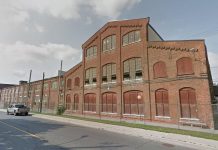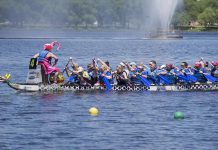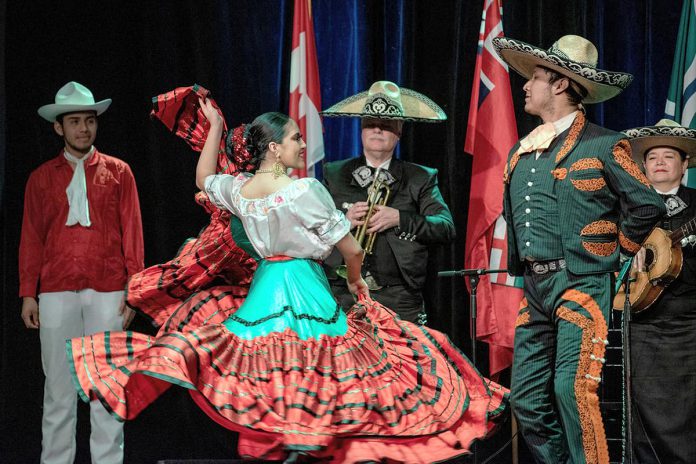
Northumberland County is anticipating an upcoming festival will help celebrate diversity and increase Northumberland residents’ exposure to various cultures from around the world.
The county is partnering with the Northumberland Hispanic Cultural Club to present the annual Northumberland Diversity Festival, which runs this year on Saturday, July 20 at Memorial Park, located at 44 Queen St. in Port Hope.
The free family-friendly event provides a space to celebrate diversity, equality, and inclusivity, the county noted in a media release.
“Partnering with the Hispanic Cultural Club to present the Northumberland Diversity Festival is about creating opportunities for people to learn more about the myriad cultures that form the fabric of our community, through the universal languages of food and music,” Dan Borowec, director of strategic initiatives for Northumberland County, told kawarthaNOW.
Festivities will kick off with a citizenship ceremony at 10 a.m. at the Capitol Theatre welcoming more than 100 new Canadians to Northumberland and surrounding communities. During this ceremony, participants will take their oath of citizenship, marking their final step in becoming Canadian citizens.
Northumberland community members are invited to join the celebration after the ceremony, by stopping by the festival at Memorial Park from noon onwards.
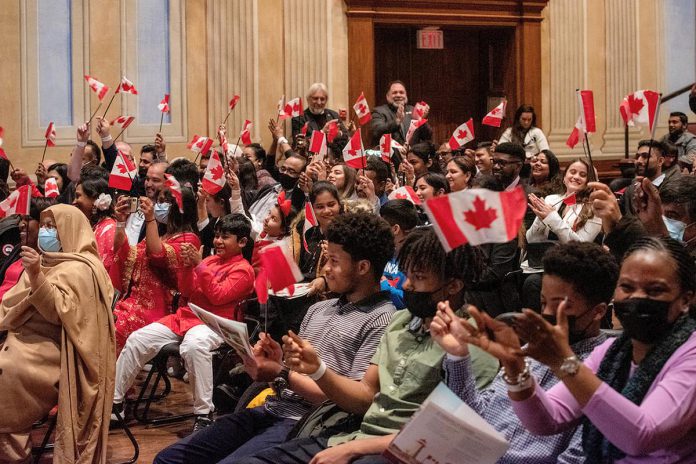
“Attendees will enjoy a lively day full of international music and performances, interactive activities for kids, and the opportunity to browse and shop local vendors,” the release noted.
The diversity festival includes:
Performances at the park bandshell from noon until 9 p.m.
Festival-goers can take in a variety of cultural music and dance performances, including Incirque, Ballet Folklorico de Mexico and Ballet Folklorico de Colombia, tenor Fabian Arciniegas, mariachi band Mexico Amigo, tango dancers Roxana y Fabian Belmonte, and many more. From 6 to 9 p.m., Music at the Park will features performances by Jonah McLean and The Gimmicks and Sultans of String.
Organizers ask participants to bring a blanket or folding chair on which to sit and enjoy the performances.
Children’s activities
Entertainment for young ones includes a stilt performer and a variety of activities offered by EarlyON Northumberland.
Local vendors’ fair from noon to 6 p.m.
Residents can browse the wares of local vendors with products available for purchase.
Radiothon fundraiser
Organizers invite residents to stop by the all-day radiothon with Northumberland 89.7 to help raise money for YMCA Northumberland and the Northumberland Food 4 All warehouse. All proceeds will support these community organizations. Non-perishable food donations will be accepted during the radiothon for distribution to local food banks in the community.
Sponsored by Cameco, the Northumberland Diversity Festival “is an immersive Canadian multicultural experience,” the county said.
“All are welcome to enjoy this wonderful opportunity to celebrate the cultures and heritage that enrich our community and country
For event details and the full schedule of performances, visit www.diversitynorthumberland.ca.
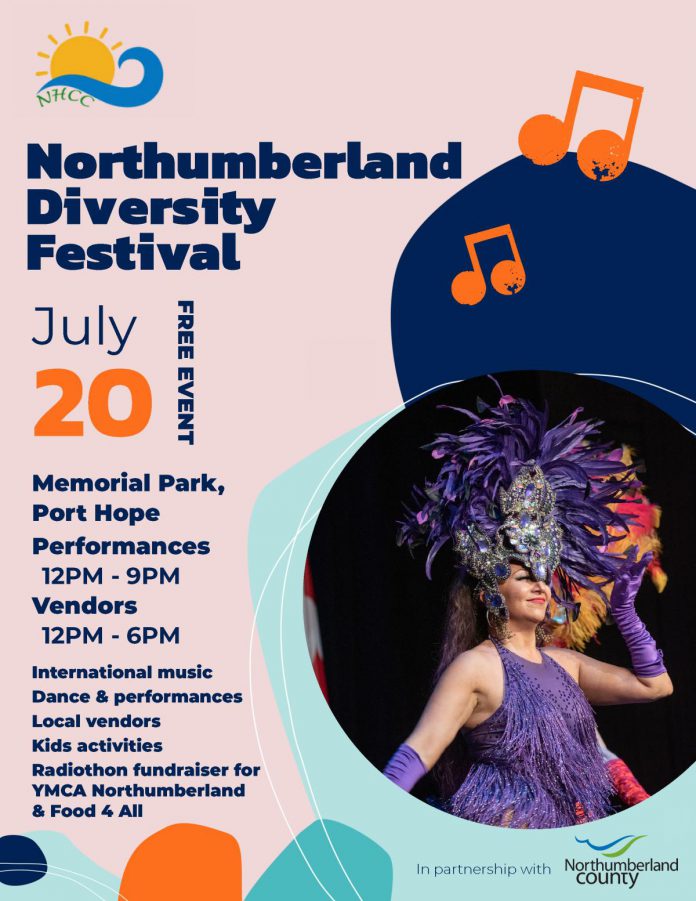
The NHCC strives to support Northumberland County’s Latin Hispanic community as well as educate others who reside here about the importance of their heritage, cultures and traditions.
The club is a registered not-for-profit organization that promotes and celebrates the arts, cuisine, culture, heritage, and music of Latin Hispanic countries.
According to the NHCC website, the term Hispanic (Spanish: hispano or hispánico, Galician: hispánico, Asturian: hispanu, Basque: hispaniar, Catalan: hispà, hispàno) broadly refers to the people, nations, and cultures that have a historical link to Spain. It commonly applies to countries once colonized by the Spanish Empire in the Americas and Asia, particularly the countries of Latin America and the Philippines.
“It could be argued that the term should apply to all Spanish-speaking cultures or countries, as the historical roots of the word specifically pertain to the Iberian region,” the website states.
“It is difficult to label a nation or culture with one term, such as Hispanic, as the ethnicity, customs, traditions, and art forms (music, literature, dress, culture, cuisine, and others) vary greatly by country and region. The Spanish language and Spanish culture are the main traditions.”
Hispanic originally referred to the people of ancient Roman Hispania, which roughly comprised the Iberian Peninsula, including the contemporary states of Spain, Portugal, Andorra, and the British Overseas Territory of Gibraltar.



